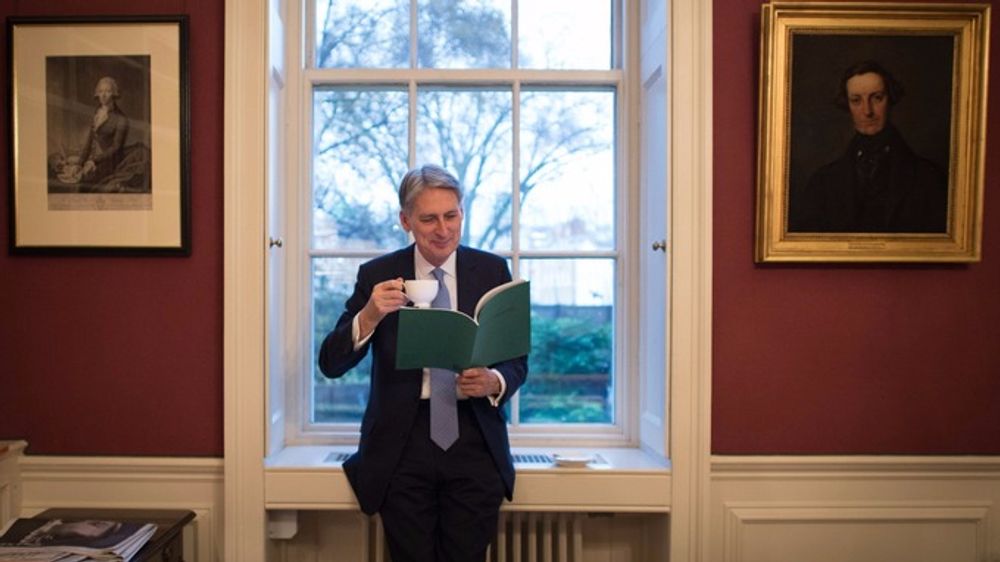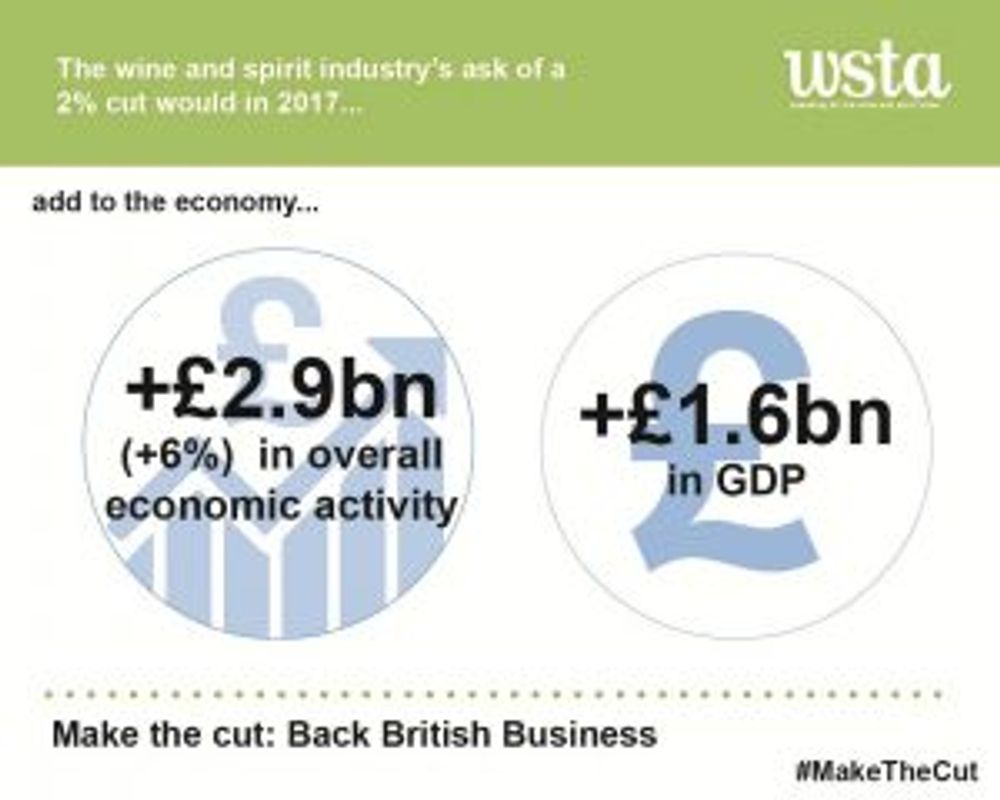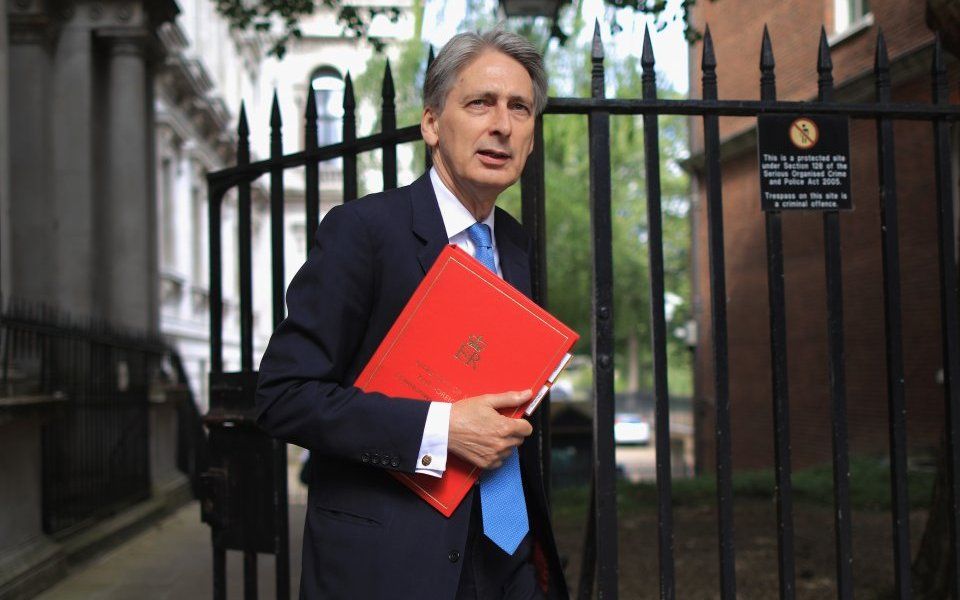Duty rises are one of the biggest burdens facing the UK on-trade. Take this opportunity to make the case for why your business needs a duty cut by lobbying your local MP and the Chancellor.

It’s time to make the case to Chancellor Philip Hammond and give him the facts that convince him a duty cut is good business for all.
We have probably had our fill recently of facts and figures. At least facts and figures that don’t add up to be anywhere near what they are supposed to be claiming.
But the right numbers in the right hands can go a long way. Even more so when it comes to convincing MPs, the government and most of all the Chancellor of the Exchequer about why it’s not in theirs or the country’s interests to wallop another duty rise on the drinks industry come the March Budget.
Easier said than done, admittedly. Particularly with a new Chancellor in town, a mounting government deficit and an enormous Brexit bill looming on the horizon. The opportunity to open up the cash tills of every pub, bar, restaurant and hotel in the country for a little bit of an earner is often too much of a temptation for a Chancellor to ignore.
But even a greedy Chancellor can be swayed by facts and figures that add up in their favour. Which is why the drinks industry, and most of all the hospitality and on-trade sectors, have a particularly strong case to take to Number 11 and call for a cut in alcohol duty in March’s Budget.
Personal appeal to local MP
A case you could make personally to your local MP, to arm them with the facts and figures that could make a difference to your business.
This month the Wine & Spirit Trade Association is urging everyone in the on-trade to play their part and simply send a pre-written letter to their MP setting out the case for 2% cut in wine and spirits duty in the March Budget.
It makes it quite clear why raising drinks duties simply does not make financial sense. In fact it actually costs the Treasury in lost revenues. That’s the message the WSTA wants everyone working the UK on-trade to get across to their local MP and then yes, the Chancellor, Philip Hammond, himself.
How do we know this? Well our various trade associations have really stepped up to the mark to arm the industry will all the ammunition it needs to fight any sort of duty hike. In fact, they make the case very well for asking for a duty cut.
The team at the WSTA deserves great credit for crunching the numbers and presenting them in such a strong way.

It says a 2% duty cut on wine and spirits would boost the economy by £2.9bn and increase Treasury revenues by £368m. Figures it has not dreamt up but are the result of a major study by independent management consultants, EY. It also forecasts that a 2% cut would increase the drink’s industry contributions to the UK’s GDP by £1.6bn (+6%).
What’s more the Treasury only has to look back to 2015 to see what impact a freeze in wine duty in the 2015 Budget had on its coffers. The duty received from wine actually increased by £136m (+3.6%) the following year. The same Budget also saw a 2% cut in spirits which resulted in an increase in duty income of £124m (+4.1%) over the same period.
So the case has already been made. We just need the government to deliver it again. This time bringing wine in to the equation.

Beer bonus
Now it’s all doom and gloom and the government, to be fair, has taken steps in recent years to either cut or freeze beer and cider duties in a bid to help the British brewing industry and save more pubs from going to the wall.
But why do wine and spirits miss out? They also not only employ large numbers of people, but have a large direct impact on the wider economy.
The WSTA believes only offering beer a break in duty is a “job half done”. Here’s why:
- 36% of all sales in pubs are for wines and spirits, with sales worth £5.7bn, including 49m bottles of spirits and 125m bottles of wine.
- This is the equivalent of £110,000 to each UK pub (£70k from spirits; £40k from wine).
- Sales of wines and spirits in pubs have gone up by £549m, since 2012, with a £293m increase in the last year alone.
- When you factor in beer, the WSTA calculates pubs and bars currently have to pay £1.9bn in excise duty a year, with a third of this, over £600m, coming from wines and spirits.
- It believes a 2% duty cut on wine and spirits would give British pubs a £31m lift, or a £594 tax cut for every landlord or bar owner in the country.
How to get directly involved
The WSTA has pulled together the following documents for you to use to personalise your lobbying efforts and send the right information and facts to your local MP and media.
- A draft letter to your MP, which you can tailor before sending:http://www.wsta.co.uk/images/Budget/2017/DraftlettertoMPs.doc
- A template local press release, that you can tailor and issue locally:http://www.wsta.co.uk/images/Budget/2017/TemplatePressReleaseMembers.doc
- A set of infographics that can be shared on social media: http://www.wsta.co.uk/images/Brexit/All_IGs.zip
- A set of template hashtags that can be shared on social media:http://www.wsta.co.uk/images/Budget/2017/TemplateTweets.doc
- A copy of the WSTA budget submission, which we will formally submit to the Treasury tomorrow: http://bit.ly/2017Budgetsub
- A briefing note on wine duty and the impact of a 2% duty cut:http://www.wsta.co.uk/images/Budget/2017/WSTABudgetWineCoreNarrative.doc
- A briefing note on spirits duty and the impact of a 2% duty cut:http://www.wsta.co.uk/images/Budget/2017/WSTABudgetSpiritsCoreNarrative.doc
Other key facts for you MP and local media to consider
- Wine businesses and consumers pay £4bn in duty and spirits businesses and consumers a further £3.2bn.
- The duty on a bottle of wine is £2.08, meaning that 55% of the cost of the average bottle in shops and super markets is taken up in tax and VAT.
- The duty on a 70cl bottle of spirits is £7.26, meaning that 76% of the cost of the average bottle of spirits in shops and supermarkets is taken up by duty and VAT.
- Duty rates for wine have increased by 56% since 2007 and spirits duty rates have increased by 41%.
- Compared to an inflationary rise of 3%, a 2% cut in duty would be worth 10p for a bottle of wine, 13p for a bottle of sparkling wine and 55p for a litre of spirits.
- UK businesses and consumers pay the fourth highest duty rate for spirits in the EU accounting for a quarter of all Spirits Duties (27.29%).
- UK businesses and consumers pay the third highest duty rate for wine in the EU accounting for 68.4% of all duties collected by member states.









































